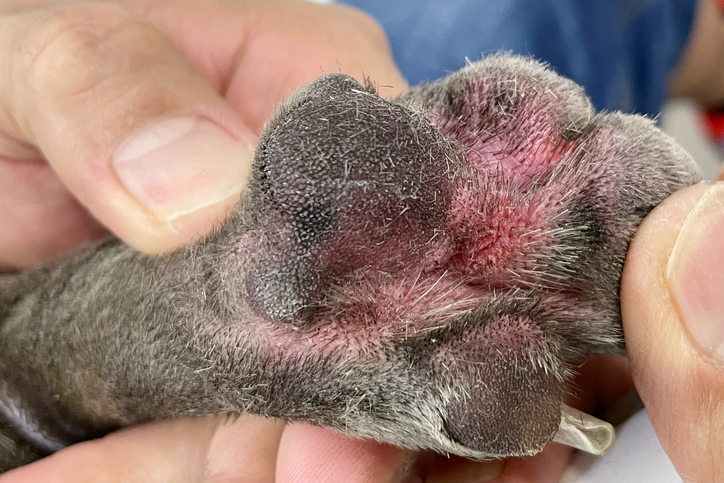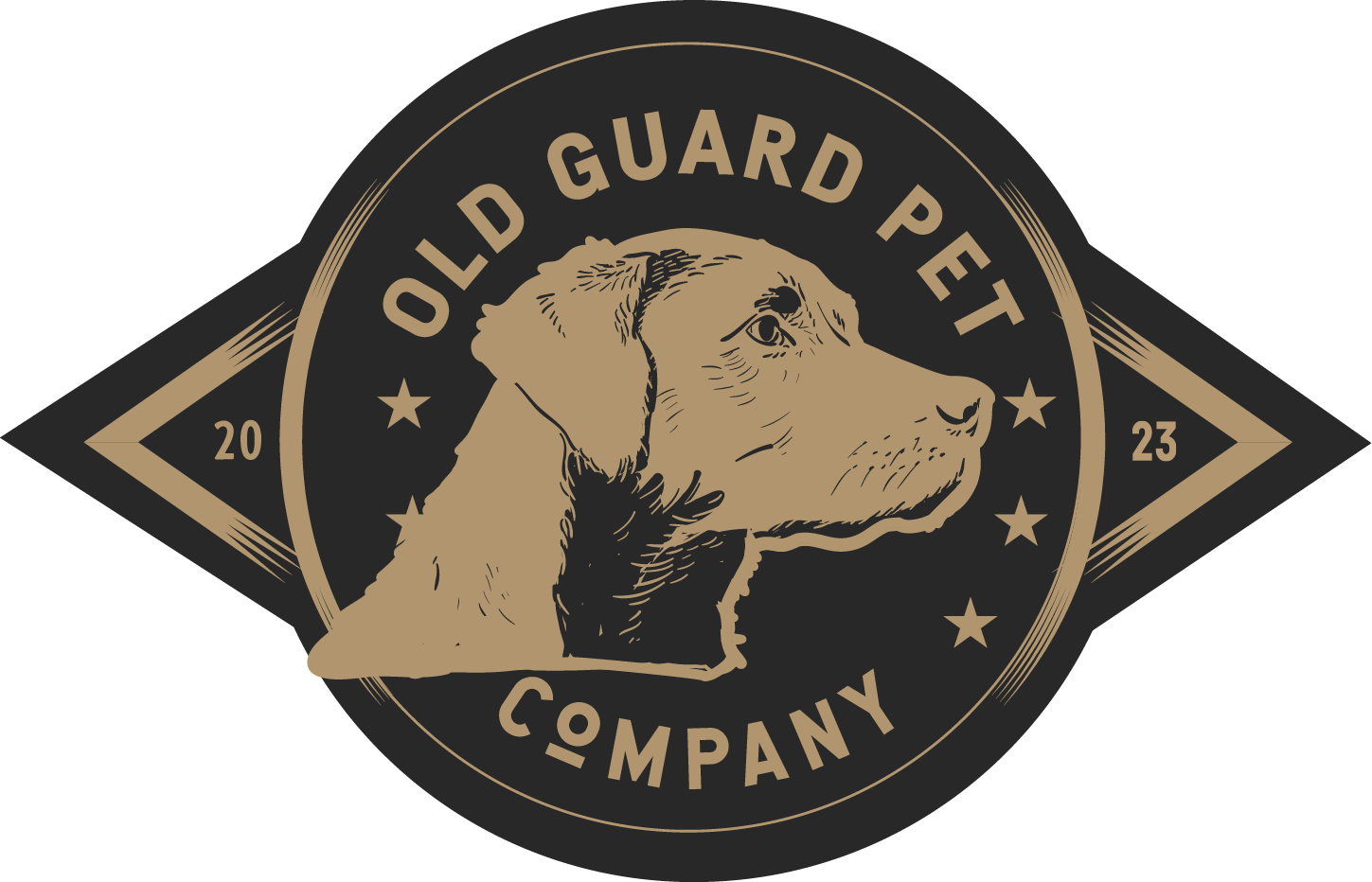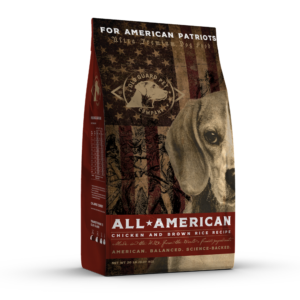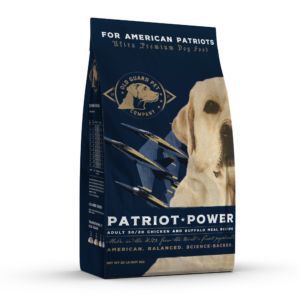Are you noticing your dog itching more than usual? What about licking their paws all the time? Or does your dog constantly have loose stools? It must be the food, right? An allergy, perhaps? A quick online search of the symptoms would likely lead you to believe your dog has a food allergy.
However, the causes of these types of skin and coat issues can be complex and caused by many factors, like the environment, genetics, or food. Also, even if your dog is reacting to the food, it can be due to various factors. You want to ensure your dog is content and comfortable, so how do you best help your dog when it has these issues?
In this blog, we will discuss the role of nutrition on your dog’s skin and coat health, the most common skin issues dogs experience, and how to best work with your veterinarian to identify the root cause so you can help provide your dog with some relief. We will also touch base on digestive health issues related to dietary sensitivities, but the heavy focus of this blog is on skin and coat.
Let’s start by discussing the dogs’ physiology regarding skin and coat.
The skin: The most significant organ in the dog
The skin is the largest organ in the dog, not only because of its surface area but also because of its vast number of roles in supporting your dog’s overall health and well-being. The skin makes up about 24% of a puppy’s body weight and 12% of an adult dog’s weight. The skin is essential for various purposes, including sensory input, immune regulations, a barrier from physical injuries and infections, temperature regulations, and a reservoir for nutrients.
Below is a list of common issues for dogs:
Common Skin Issues
- Coat Quality
- Itching and Licking
- Excessive Shedding
- Chronic Ear Infections
- Hair Loss
- Sores
- Skin
- Abnormalities: Skin hardening/crusting
Common Gastrointestinal Issue
- Diarrhea or loose stool
- Constipation
- Vomiting
- Flatulence/Gas
- Indigestion
Risk Factors for Skin and Coat Issues
- Breeds: Certain breeds are predisposed to skin issues or “nutritional dermatosis.” For instance, Cocker Spaniels can be more prone to Vitamin A issues. At the same time, large-breed dogs can have problems with zinc balance and availability. Other breeds, like Labrador Retrievers, Bull Terriers, German Shepherds, etc., are more hypersensitive.
- Coat Characteristics: Dogs with dense or thicker and longer coats are thought to have higher nutritional demand. Similarly, dogs with darker coat colors can often have noticeable changes in pigmentation of the coat, with a poor-quality diet leading to “reddening” of the coat.
- Age: Most food-related sensitivities are believed to develop early in life, with some suggesting during the weaning period and others indicating around 1 to 3 years of age.
- Other Health Issues: Certain diseases can impact nutrient availability and assimilation. Prolonged antibiotic treatments can also reduce B Vitamin and essential fatty acid availability.

Dog allergies
Diet and the Impact on Skin and Coat
The effects of diet on skin and coat quality in healthy dogs can be challenging to see, and the impacts of diet may take time to develop since coat turnover in dogs can typically take several months or longer. However, know that your dog’s food is critical to their skin and coat health daily as their skin and coat constantly rejuvenate and remain highly dependent on a large amount of macro and micronutrients in the food.
The relationship between skin and coat health and food is often under appreciated regarding nutrition’s role in preventing skin diseases or infections (the skin is usually considered the first line of defense) and as a therapeutic tool for dogs already suffering from skin issues.
There are three primary ways diet impacts skin and coat.
- Nutrient Imbalances
Imbalances can refer to both excess nutrients and deficiencies. Key nutrients central to skin and coat health include Vitamin E (tocopherols), B Vitamins, Zinc, Copper, Iodine, protein (namely, the amino acids methionine, cystine, tryptophan, and tyrosine), and essential fatty acids (linoleic acid and alpha-linolenic acid). Poor formulated, cooked, or stored diets are at higher risk of deficiencies. Supplementing your dog’s food inappropriately can cause competitive interactions in the recipes, leading to excess or deficiency of nutrients that impact skin health. - Poor Quality/Low Digestibility
Diets with low digestibility or quality can cause secondary deficiencies due to reduced digestibility and lower absorption of essential nutrients. For example, low protein quality (meaning less will be digestible) can lead to dermatological issues since about 30% of the daily protein your dog consumes is used by the body for skin and coat health. - Inflammation/Sensitivities
Beyond the role that nutrition plays in dogs’ overall skin and coat health, a small group of dogs can suffer from dietary hypersensitivities that can cause skin and coat issues and can be directly related to developing an adverse reaction to one or more diet components.
What is Diet Hypersensitivity?
Food intolerances are abnormal reactions to food that result from an inability to digest food adequately or from specific internal reactions to the food (i.e., a dog’s metabolic response to certain substances). Hypersensitivities can be split into two groups: one in which an immune reaction occurs (this is an allergic reaction) and one in which no immune response is activated (non-immunological). Determining if your dog has an allergic response can be challenging since the symptoms are often very similar.
The documented prevalence of skin-related issues due to food is relatively low, with only about 1-6% of all skin diseases in dogs being related to food.
How common are diet sensitivities?
The documented prevalence of skin-related issues due to food is relatively low, with only about 1-6% of all skin diseases in dogs being related to food. That means the majority of skin issues are from something other than hypersensitivity to food. Gastrointestinal reactions have been reported to be at 10-15% of adverse food reactions. However, anecdotal reports of food allergies are often much higher from pet owners, and this could be due to several factors, misdiagnosis and confusion of allergies with food sensitivities and intolerances, which are similar in visible signs or clinical features to allergies but without the same immune-related response.
It has been suggested that food and other common environmental factors may contribute to skin or gastrointestinal issues. It’s possible that these problems are often caused by a combination of factors exceeding the body’s tolerance threshold. Addressing one issue can often help manage the overall problem. Additionally, it’s possible that the true incidence of these issues is higher than officially documented. This may be due to pet owners self-diagnosing and treating their pets at home without consulting a veterinarian, leading to underreporting in veterinary medicine.
Causes of Diet Hypersensitivity

Any food ingredient can cause an allergic reaction; however, most reactions are from proteins. Namely, the most significant documented contributor to food sensitivities is beef, dairy, or some cereals (soy/wheat). Usually, these ingredients must form a large part of the diet. Other ingredients that can cause dietary reactions are other commonly used protein sources in dog foods such as chicken, fish, pork and egg. Corn can also cause reactions but, incidence is low. Dogs that are sensitive to one ingredient may be at increased risk for sensitivities to other ingredients as well.
- Cooking methods: Can both reduce or enhance a dog reaction to a specific ingredient. This has been studied by looking at the same ingredient in different cooking methods and seeing a change in immune response to that ingredient. Overcooking a protein, leading to a reduction in digestibility can increase reactivity where no cooking of certain ingredients can also increase reactivity.
- Other Types of Canine Allergies to Consider: The most prevalent types of allergies in dogs are flea allergy dermatitis, atopic dermatitis (also known as atopy which is essentially excessive itching leading to skin damage).
- Flea Allergy Dermatitis (FAD): This is the most common skin disease in dogs and is caused by an allergic reaction to flea bites, specifically to the saliva of the flea. Even a single bite can trigger intense itching and scratching, leading to secondary skin infections.
- Atopic Dermatitis: Atopy is an allergic reaction to environmental allergens that are inhaled or encountered by the skin. Dogs with atopy may show signs of chronic itching, licking, and scratching, particularly affecting the face, ears, and paws.
Diagnosis and Management of Skin Issues
Diagnosing canine allergies can be challenging and frustrating to a pet owner. It often takes time and involves a process of elimination to rule out other health conditions. Various types of saliva or blood tests may be required to identify specific allergens. The issue with saliva or blood tests is their low accuracy and reliability. Independently or in collaboration with a veterinarian, owners can also do a “trial and error” approach with foods, flea/tick treatments and short-term medications to find one that works for their dogs.
Once diagnosed, management of canine allergies and sensitivities can usually be maintained but, since some sensitivities can arise at any time in a dog’s lifetime, and even after years on a specific recipe it requires consistent monitoring. The gold standard method for determining food sensitivity is to remove the dogs from the food source with the suspected allergen and feed them for a period of about 6-10 weeks. Then once the sensitivity has subsided return the dog to the original food to see if symptoms return (this is called a challenge). If symptoms return, this usually happens quickly and truly confirms you have identified the right issue (even though it seems a bit silly to do). During each controlled feeding time dogs cannot be fed treats or food scraps etc. making compliance to this elimination trial difficult and often low. If your dog has gastrointestinal-related allergic reactions, these usually clear up in about two weeks.
How does Old Guard Pet Company support healthy skin and coat?
- Nutrient Balance: Our recipes are perfectly balanced. This means that, with our expertise, we have a deep understanding of nutrient interactions and ensure the diets are working as a whole to promote the health of your dog from the inside out.
- Highly digestible: Our high-quality ingredients are highly digestible. We test each recipe for the digestibility of the whole diet and protein.
- Cooking: We use a unique slow cooking process, meaning we cook everything to improve the digestibility and safety of the products but avoid overcooking the food. We also make everything in small batches at a family-run facility in the USA.
- Nutrient Rich: Many supplements on the market support skin and coat health, itching/allergies, and gastrointestinal health. Depending on what you feed and the ingredients used, these may be valuable or not. Check out our blog on supplements for more information: The Positive and Negatives of Supplementing With Dog Food Toppers
However, we go beyond and ensure we already add the supplemental omega-three into the recipe. We add other nutrients critical to skin health, like Vitamin E, an essential antioxidant. We ensure that other nutrients like pre and probiotics, fiber, and postbiotics are added to support sensitive stomachs. Encouraging a healthy gut can impact whole body health. We have heard from several customers that they have been able to remove their dogs from certain antacid medications after feeding their dogs one of our premium recipes.
Overall, skin and coat health are complex and directly related to nutrition, from genetics to daily energy and nutrient demands to reactions to certain ingredients. High-quality recipes that are digestible and nutrient-dense should be able to support common skin issues.
References:




